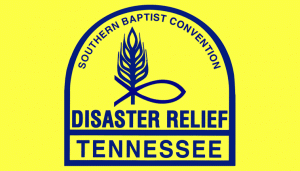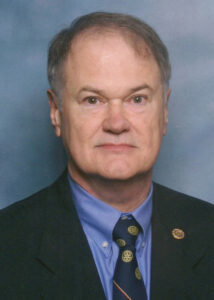By Bob Holeman
Retired journalist, Winnfield, La.
 In August, Hurricane Laura dealt havoc to Winn Parish, leaving a tangle of downed trees, damaged homes and a spaghetti mix of wires, broken power poles and transformers that left us without power and in a communication blackout.
In August, Hurricane Laura dealt havoc to Winn Parish, leaving a tangle of downed trees, damaged homes and a spaghetti mix of wires, broken power poles and transformers that left us without power and in a communication blackout.
Our home got power back after 10 days but it was two weeks before our internet and TV service was restored. We then tuned in to see what damage Laura had wrought but found no coverage of a storm that had devastated Louisiana, for she was then two weeks old. There was scant coverage even of the wildfires that continued to rage along the Pacific west coast.
Instead the media, both left and right, seemed to focus their airtime on the acts of social and racial hatred that boiled over in a number of metro areas. They’d like to hold that this is what America is today: a Republic founded on the Judeo-Christian ethic whose wheels have fallen off after some 250 years; a nation that has turned from God and is so flawed with discrimination that it can’t be fixed.
I’m going to suggest that they’ve got it wrong. Let me tell you a little about what we saw in Winn Parish following Laura. When the hurricane’s winds had passed, folks didn’t wait on government to solve the problems. Capable homeowners and loggers alike came out to clear roads alongside first responders where possible so folks could get through. And they looked for ways to help each other.
Let’s talk for a bit about a strike force of 68 Tennessee volunteers who brought love, hope and tree removal to some 250 home sites here over a two week period.
The first group of eight arrived from Tennessee just a week after Laura had struck but when they found that First Baptist Church, Winnfield, could host 30, the team quickly expanded to 30. The second group had 38.
With two bucket trucks, a tractor, and Bobcat plus power saws, the volunteers daily broke into four teams and went to separate sites based on work orders prepared by a prioritization of requests.
Harold Renfroe of Lexington, one of the youngsters at 62, said that one lady had “two great big trees down on her horse pen. She had given up, thinking we couldn’t do anything. But we did. At the end, we presented her a Bible. She broke down and cried. So did we. She didn’t realize we’d drive down this far to cut up her two trees. We can’t get over how friendly and appreciative people here are.”
“We came to give them hope,” said LaDonna Tucker of Signal Mountain. “There was a lady, a widow who had no idea what she could do next. Her trailer had a tree through the middle. We got the tree out and put a tarp over the trailer. We also got six big trees out of her yard. When she got back and saw what we had done, she just sat in her car and cried.” She hadn’t believed her home would look that whole again.
An operation like this takes a lot of support and much organization. First Baptist hosted housing and a meal site for breakfast and dinner. Westside Baptist Church, Natchitoches, provided the mobile kitchen manned by volunteers from First Baptist Church, Natchitoches, organized by Jack Ingram. Many churches provided volunteers, resources and food to assist the visitors. “The food is great. I usually gain some weight during these mission projects,” confessed Doyle Pittman of Chattanooga.
One of the volunteers carries an experience that allowed him to see Winn’s disaster from a different perspective. Bill Luttrell was serving as a missionary in the Abaco Islands near Bermuda when Hurricane Dorian struck a year ago. “After you go through this, you feel defeated, in a mental fog. You’ve lost everything. It’s hard to get anything going. Then someone shows up to give you a little hope. You can take your first step.
The two teams from Tennessee completed work at 250 sites. Despite this accomplishment, there are still many more requests in the folder. Luttrell recalled that one homeowner pulled up to the crew on their final day in town and called out, “Even if you don’t get to my house, thank you for what you’re doing for our community.”
On a personal note, when I first heard this disaster relief team was from Tennessee, I wondered about the possibility of any coming from the small town east of Knoxville where my daughter now lives. Chances were good. We visited the first crew one evening to discover that eight had traveled from Dandridge, with five of them members of Laura’s home church. Small world.
Other towns represented by the Tennessee crew were Knoxville, Chattanooga, Lexington, Maryville, Signal Mountain, Jefferson City, Brownsville, Martin, Jackson, Covington, Dyersburg and Newbern.
That’s my observation. I feel that what we’ve seen here since Aug. 27 gives a truer representation of what America really is than what is portrayed in the media. B&R — Holeman spent 35 years as editor and publisher of weekly newspapers in the rural north Louisiana towns of Coushatta then Winnfield.

